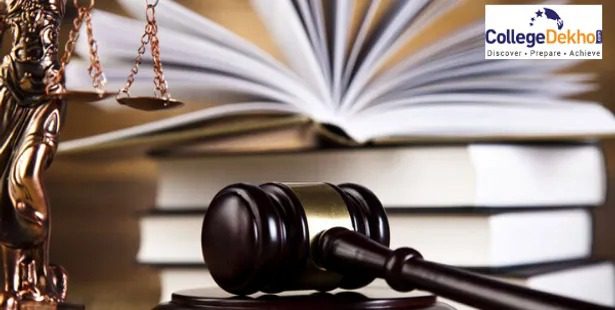Karnataka High Court
K P Pushpesh & Others V. State of Karnataka
CRIMINAL APPEAL NO. 879 OF 2016 C/W CRIMINAL APPEAL NO. 2118 OF 2016
Bench- HON’BLE MR JUSTICE K.SOMASHEKAR AND HON’BLE MR JUSTICE RAJESH RAI K
Decided On 21-06-2023
Facts of the case-
In the case presented by the prosecution, it was alleged that on April 17, 2014, there existed ill-will between the deceased individual named Nousheer and accused individuals numbered 1 to 3. The prosecution claimed that the accused parties, acting in concert with a common intention to commit murder, drove in a car to the vicinity of CW.6-Raman’s house where the deceased Nousheer was heading.
Accused Nos. 1 and 2 allegedly restrained Nousheer near CW.6-Raman’s house and proceeded to assault him with a sickle, inflicting grievous injuries on his head, face, neck, shoulder, and both hands, resulting in his death. It was further alleged that accused No. 3 facilitated the murder by providing information to accused Nos. 1 and 2 regarding the movements of the deceased.
The prosecution’s case primarily relied on the testimony of two neighbors who were purported eyewitnesses to the incident.
However, the defense counsels argued that the trial court placed undue reliance on the evidence provided by PW.22 and PW.24, the alleged eyewitnesses, without adequately scrutinizing or appreciating their testimony, which was deemed highly inconsistent.
The defense pointed out that the eyewitnesses did not make any effort to intervene or raise an alarm during the incident, nor did they promptly inform the police. Furthermore, they failed to identify the weapons that were supposedly used in the commission of the crime.
Judgement
The court has acquitted three youths who were previously convicted and sentenced to life imprisonment for charges of murder. The court found that there were material contradictions in the evidence provided by eyewitnesses to the incident, and the prosecution failed to corroborate their testimony with any other material.
The court began by referring to the evidence of the complainant, who was declared hostile by the prosecution. It noted that the complainant admitted that the complaint was written by his advocate, Sunil, and he did not review the contents of the complaint. Furthermore, the complainant was unaware of the reason behind the commission of the incident.
Upon reviewing the complaint, the court observed a discrepancy between the names mentioned in the complaint and the names mentioned in the First Information Report (FIR) registered by the police. The prosecution failed to explain this inconsistency during the investigation or before the trial court. Additionally, the police dropped one of the accused persons mentioned in the FIR and implicated another accused person not mentioned in the original complaint. The court deemed this discrepancy and subsequent actions by the prosecution as unexplained. Consequently, the evidence provided by the complainant, who turned hostile, was deemed unhelpful to the prosecution’s case.
The court then assessed the evidence provided by the eyewitnesses and concluded that their testimony could not be relied upon to prove the guilt of the accused to the fullest extent. It noted that the prosecution failed to comply with Section 100(4) of the Criminal Procedure Code (CrPC) regarding the proper recovery of weapons used in the offence. The investigation officer did not secure the presence of neighbors in the vicinity during the recovery of the weapons, despite the presence of several houses nearby. This non-compliance with the provisions of Section 100(4) of the CrPC raised doubts in the court’s mind regarding the recovery process.
The court emphasized that compliance with the aforementioned provisions is generally sought in the given circumstances of a case. It further stated that when the evidence of eyewitnesses is untrustworthy and shaky, the recovery of material objects plays a vital role. However, in this case, the prosecution failed to prove such vital circumstances by providing proper evidence.
Consequently, the court held that although the prosecution had proven the homicidal death of the deceased beyond reasonable doubt, it had failed to establish a connection between the accused and the deceased’s death based on the evidence provided by the eyewitnesses and other circumstantial evidence.
The court criticized the Sessions Judge for ignoring reasonable doubts that arose from the prosecution’s evidence and its conduct in suppressing a material witness. The inconsistencies in lodging the complaint against four persons, subsequently registering the case against three persons, and finally dropping one accused and implicating another created doubt in the prosecution’s case from the beginning. The court concluded that the benefit of doubt must be given to the accused persons, and therefore, the prosecution failed to prove the charges against them beyond reasonable doubt.
Additionally, the court dismissed the appeal filed by the State government challenging the trial court’s order of acquitting the accused for offences punishable under the Arms Act.
JUDGEMENT REVIEWED BY ABHAY SHUKLA
“PRIME LEGAL is a full-service law firm that has won a National Award and has more than 20 years of experience in an array of sectors and practice areas. Prime legal fall into a category of best law firm, best lawyer, best family lawyer, best divorce lawyer, best divorce law firm, best criminal lawyer, best criminal law firm, best consumer lawyer, best civil lawyer.”


